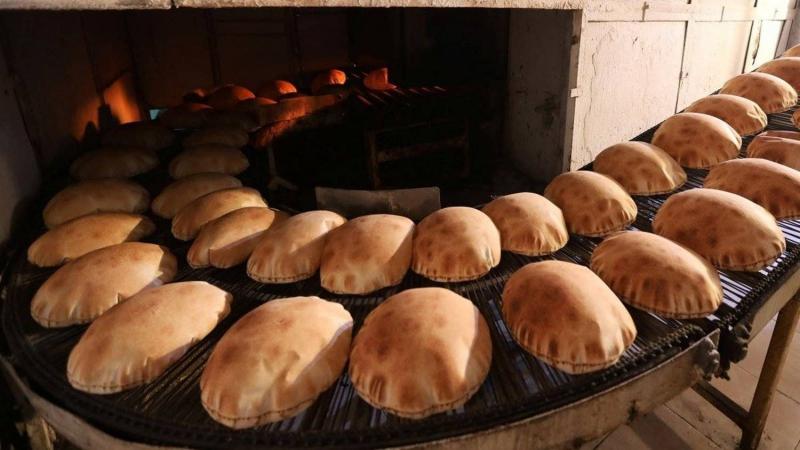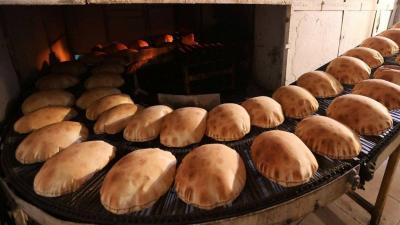Khaldoun Ben Amou (63 years old) begins his journey to find bread from the early hours of the morning to avoid standing for hours in queues outside the local bakery, a scene that has become familiar in Tunisia for months due to the bread crisis and the shortage of various food items in the markets such as white flour and semolina. Najia Khalafallah (56 years old) states that she lives in a village with only one bakery, and after 10 a.m., there is not a single loaf of bread to be found. She says residents write down their names and the number of loaves requested, which cannot exceed five per household. Such scenes are repeated daily across all provinces of Tunisia, albeit with varying intensity, but the result remains the same: crowds, pushing, and long queues in front of bakeries to obtain whatever bread is available.
Bread is an essential component of Tunisian tables, with an average annual consumption of 70 kilograms per person. However, this rate significantly increases during Ramadan as consumption patterns change, rising by 34 percent per person, according to official data from the Tunisian Institute of Strategic Studies. The bread crisis in Tunisia amplifies citizens' fears regarding genuine threats to their food security, especially amidst the shortage of several essential food items such as sugar, flour, rice, and coffee, in addition to a milk crisis that occurred months ago.
President Kais Saied accused unnamed "lobbies and parties" of creating the crisis, calling on the Ministry of Agriculture, the Grain Office, and all administrations to "combat monopolists and those playing with the livelihood of Tunisians." He stated that "the goal of these successive crises is to incite society for clear political purposes." In recent speeches, Saied acknowledged the weakness of economic oversight, skyrocketing prices, and the decline in purchasing power, pointing out there is a "great eagerness" among Tunisians to buy various consumer goods.
He spoke about waste in bread consumption, with large quantities thrown in the trash despite being subsidized by the state budget. Reports from the Tunisian Institute of Consumption indicate that approximately 900,000 loaves are discarded. The cost of this waste in bread consumption amounts to 100 million dinars (33 million dollars) annually.
In conjunction with Saied's statements, the Ministry of Trade decided to halt the supply of subsidized flour to unclassified bakeries, which provoked the owners of unclassified modern bakeries—who sell various types of bread and pastries—to organize a protest that was dispersed after a meeting with Minister of Trade Kalthoum Ben Rajab. Mohamed Al-Jamali, head of the professional group of modern bakeries at the Tunisian Confederation of Citizen Enterprises (CONECT), told Reuters that the reason for the sit-in in front of the ministry was the ban on producing bread. He added that they are waiting to reach a solution that satisfies all parties, especially after the minister's commitment during a session with the group, noting that 80 percent of unclassified modern bakeries have not resumed operations, awaiting the supply of essential materials.
The number of classified bakeries benefiting from subsidized flour is approximately 3,737, while the unclassified bakeries total 1,443 and receive a smaller quota of subsidized flour compared to others, according to Al-Jamali. He expressed surprise at talks of a breakthrough in the bread crisis, despite the reality showing that many areas are still suffering, such as a region in Kairouan governorate that has one unclassified modern bakery that has closed, leaving residents without bread.
#### Structural Crisis
The association "Alert," which aims to combat the phenomenon of rent-seeking in Tunisia, stated on its official Facebook page that the bread crisis lies in structural problems that can be summarized in two parts: the level of local grain production and the distribution of quotas from mills to bakeries. The association noted that even under optimal weather conditions, local production has been unable to cover annual grain needs due to neglect in the agricultural sector, especially with main crops.
The sector has failed to provide more than 55 percent of Tunisia's needs for hard wheat and 0.3 percent for soft wheat during peak production seasons. Tunisian experts attribute this crisis to the state's monopoly through the National Grain Office, which suffers from financial difficulties, over grain sector transactions along with reduced wheat yields due to drought, coinciding with the Russian-Ukrainian war.
The Ministry of Agriculture previously announced that the country's wheat harvest dropped by 60 percent this year to 250,000 tons due to drought. This is likely to increase the financial difficulties the country faces as it seeks an international rescue package. Khaldoun laments his situation, stating, "I have never lived through such a situation, even in the most challenging times this country has faced... not even during the COVID period."




